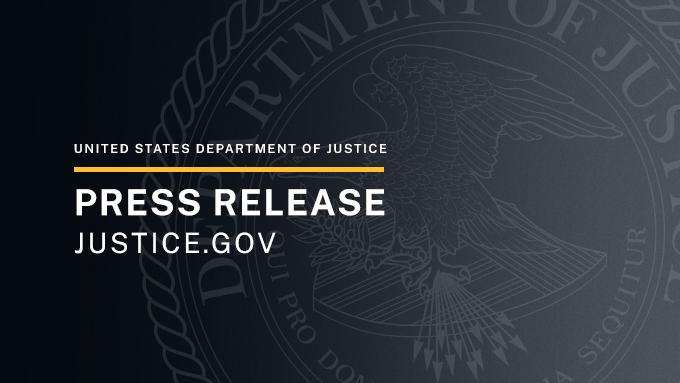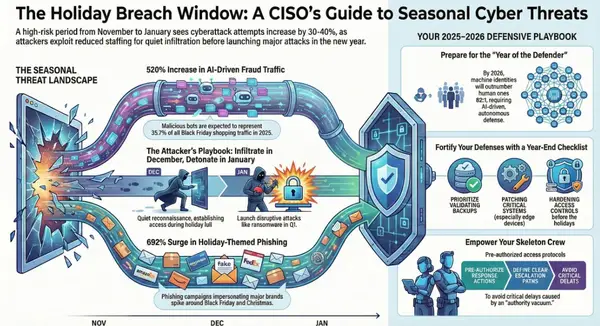Former Army Soldier Pleads Guilty in Major Cybercrime Spree Targeting AT&T, Snowflake

A 21-year-old former U.S. Army soldier has pleaded guilty to orchestrating a widespread cybercrime campaign that targeted major telecommunications companies and cloud service providers, marking what cybersecurity experts are calling one of the most significant wins in the fight against cybercrime.

The Defendant and Charges
Cameron John Wagenius, 21, who used the nickname "kiberphant0m" online, has pleaded guilty to conspiracy to commit wire fraud, extortion in relation to computer fraud, and aggravated identity theft. Cameron Wagenius faces a maximum of 27 years in prison, with Wagenius is scheduled to be sentenced on October 6 and faces over 20 years behind bars.
The case represents a significant escalation in cybercrime prosecutions, as "He pled guilty without even a plea bargain, and the government might still file additional charges. Amazing." according to court observers.

Timeline of Criminal Activity
Wagenius was an active duty soldier and stationed in South Korea and at Fort Cavazos in Texas when he conducted the hacks between April 2023 and Dec. 18, 2024. The soldier's criminal activities spanned multiple continents while he was serving his country, creating a particularly troubling case for military and cybersecurity officials.
Police detained Cameron John Wagenius, 20, on Dec. 20 near the U.S. Army's military base Fort Cavazos, formerly known as Fort Hood, in Texas, following a sealed indictment filed on December 18 in Seattle federal court.

The Scope of the Attack
The cybercrime operation was extensive in both scale and ambition. He worked with two other hackers and allegedly stole thousands of sensitive call records, according to court documents. The financial motivation was substantial: Wagenius and several others sought at least $1 million in ransoms for the stolen data.
Connection to Major Data Breaches
While Authorities did not name Wagenius' alleged victims in court filings. AT&T in July confirmed cybercriminals accessed the company's Snowflake environment in April and stole customer data, the timing and methods strongly suggest connections to the broader Snowflake customer breach campaign that affected multiple major corporations.
The case is part of a larger investigation into attacks on Snowflake customers, with Connor Moucka was arrested on October 30 in Ontario, Canada at the behest of the United States, indicating an international scope to the criminal enterprise.

Methods and Motivation
The investigation revealed disturbing details about Wagenius's methods and potential motivations. Federal prosecutors accuse Cameron Wagenius of searching how to defect to Russia before he tried to sell stolen data to a foreign intelligence service. This revelation adds a national security dimension to what initially appeared to be financially motivated cybercrime.
Prosecutors said that in addition ... of the stolen phone records unless he was paid, demonstrating the extortion tactics employed by the criminal group.
Multiple Plea Agreements
Wagenius's legal troubles unfolded in stages. Cameron Wagenius had already pleaded guilty to other charges earlier this year, before entering additional guilty pleas for the more serious charges. Cameron John Wagenius, the accused, informed a federal court in Seattle of his plea on Wednesday following his arrest in January 2025.
The charges specifically involved Wagenius previously pleaded guilty to "unlawfully posting and transferring confidential phone records information, including those allegedly pertaining to high-ranking public officials." This detail suggests the breach may have affected government officials or other high-profile individuals.
Law Enforcement Response
The investigation benefited from private sector cooperation. The DOJ thanked private companies Flashpoint and Unit 221B for their assistance with the investigation. This public-private partnership approach has become increasingly important in complex cybercrime cases.
A researcher that helped with the investigation called this 'one of the most significant wins in the fight against cybercrime.' The successful prosecution demonstrates the increasing sophistication of law enforcement's approach to cybercrime investigations.

Broader Implications
The case highlights several concerning trends in modern cybercrime:
Insider Threats: The involvement of an active-duty military member raises questions about background checks and monitoring of personnel with sensitive access.
International Scope: The connection to potential foreign intelligence services transforms a criminal case into a national security concern.
Cloud Service Vulnerabilities: The targeting of Snowflake customers demonstrates how attacks on cloud service providers can have cascading effects across multiple organizations.
Extortion Evolution: The systematic approach to extortion, demanding specific ransom amounts and threatening data release, shows the professionalization of cybercrime operations.

Legal Precedent
This guilty plea involves two counts of "unlawful transfer of confidential phone records information," with each count carrying a maximum penalty of a $250,000 fine and up to 10 years in prison. The case sets important precedents for prosecuting military personnel involved in cybercrime and for addressing crimes that span both financial and national security domains.
The fact that Wagenius pleaded guilty without a plea agreement suggests either overwhelming evidence or cooperation in ongoing investigations. Many of the court documents for that case have been sealed and restricted from the public, indicating the sensitive nature of the investigation.

Conclusion
The Cameron Wagenius case represents a watershed moment in cybercrime prosecution, combining elements of insider threats, international espionage, and large-scale data theft. With sentencing scheduled for October 6, the case will likely influence future prosecutions of similar crimes and may prompt reviews of security protocols for military personnel with technical access.
The successful investigation and prosecution demonstrate that even sophisticated cybercriminals operating across international boundaries can be brought to justice through coordinated law enforcement efforts and private sector cooperation. As cyber threats continue to evolve, this case provides a blueprint for addressing complex, multi-jurisdictional cybercrime operations.












